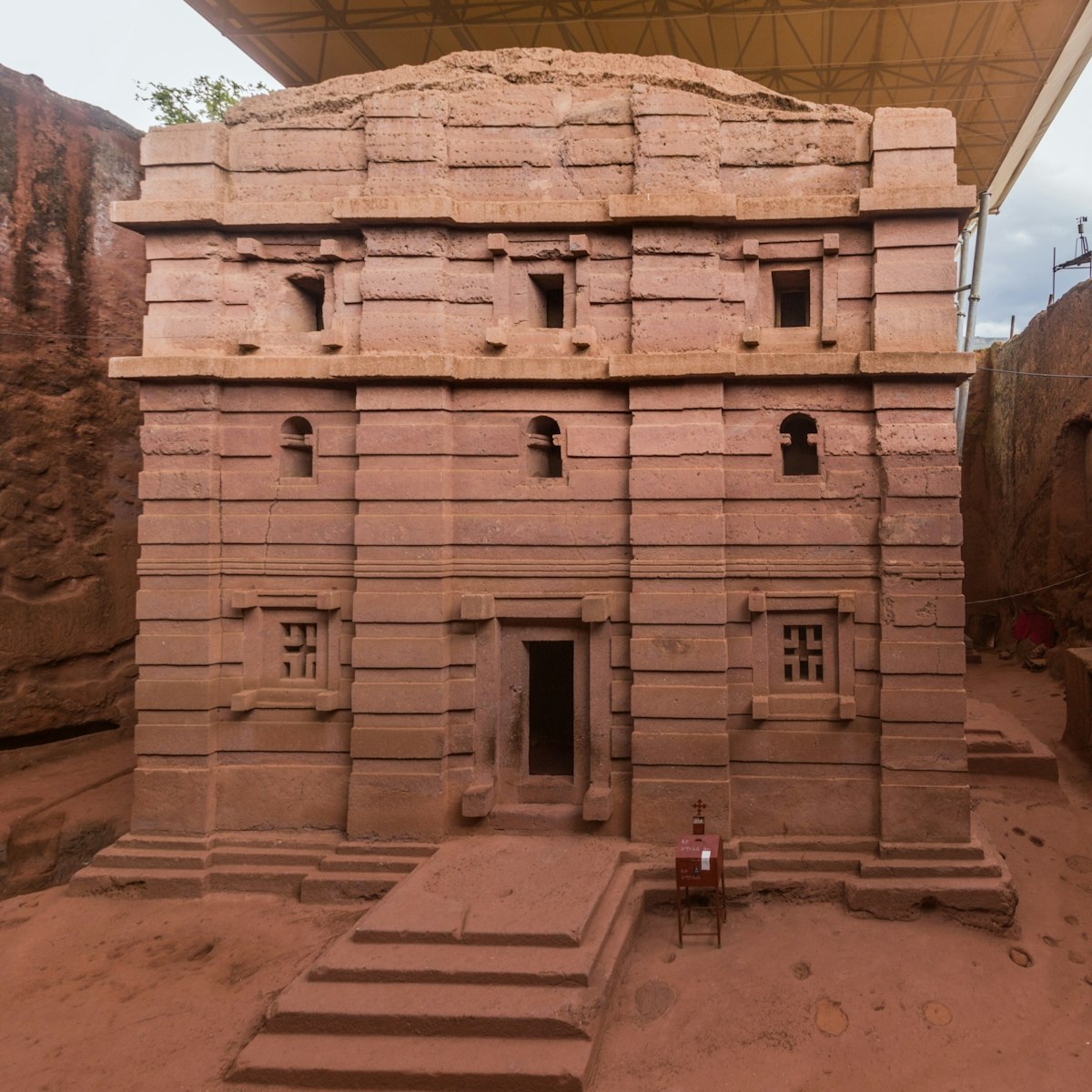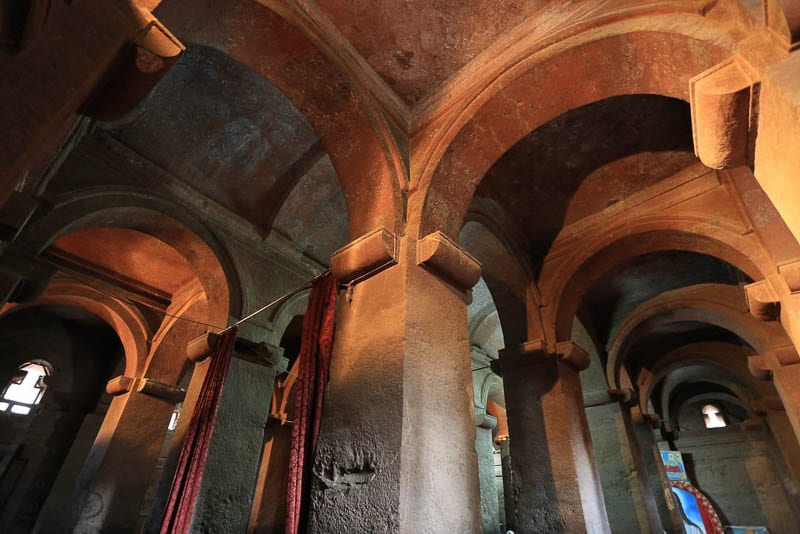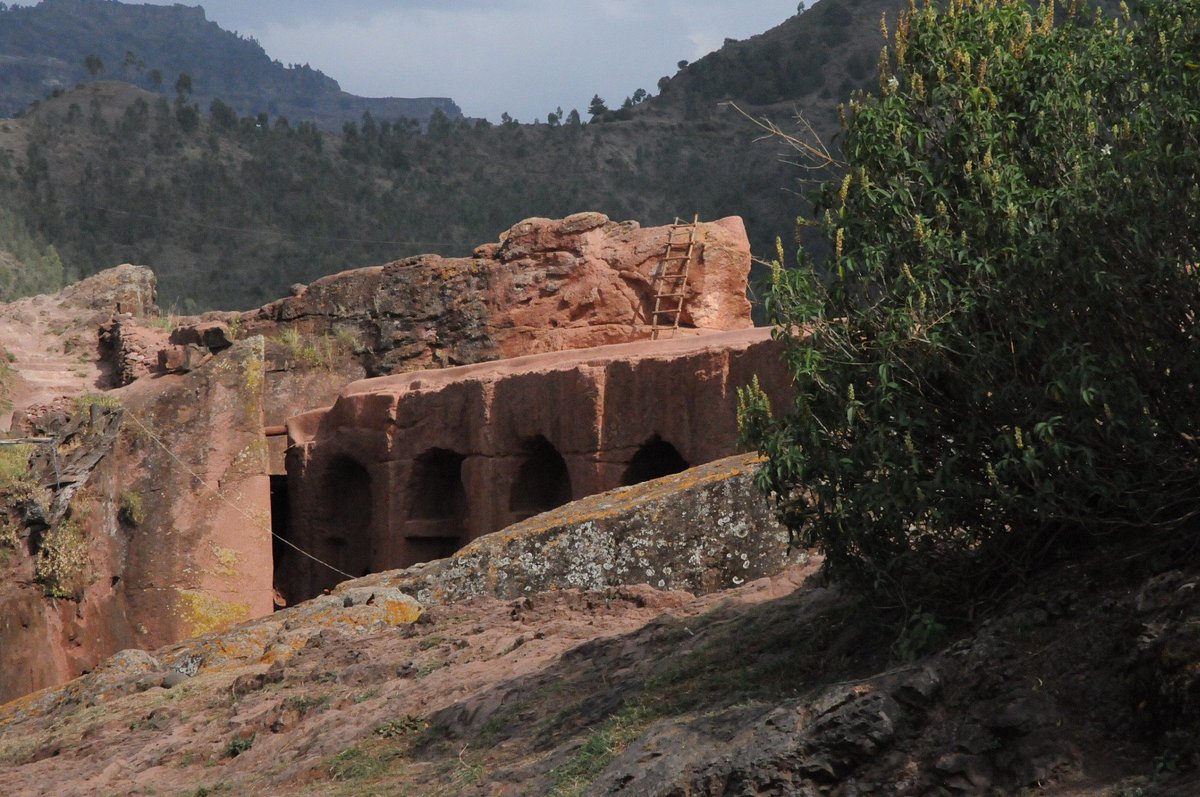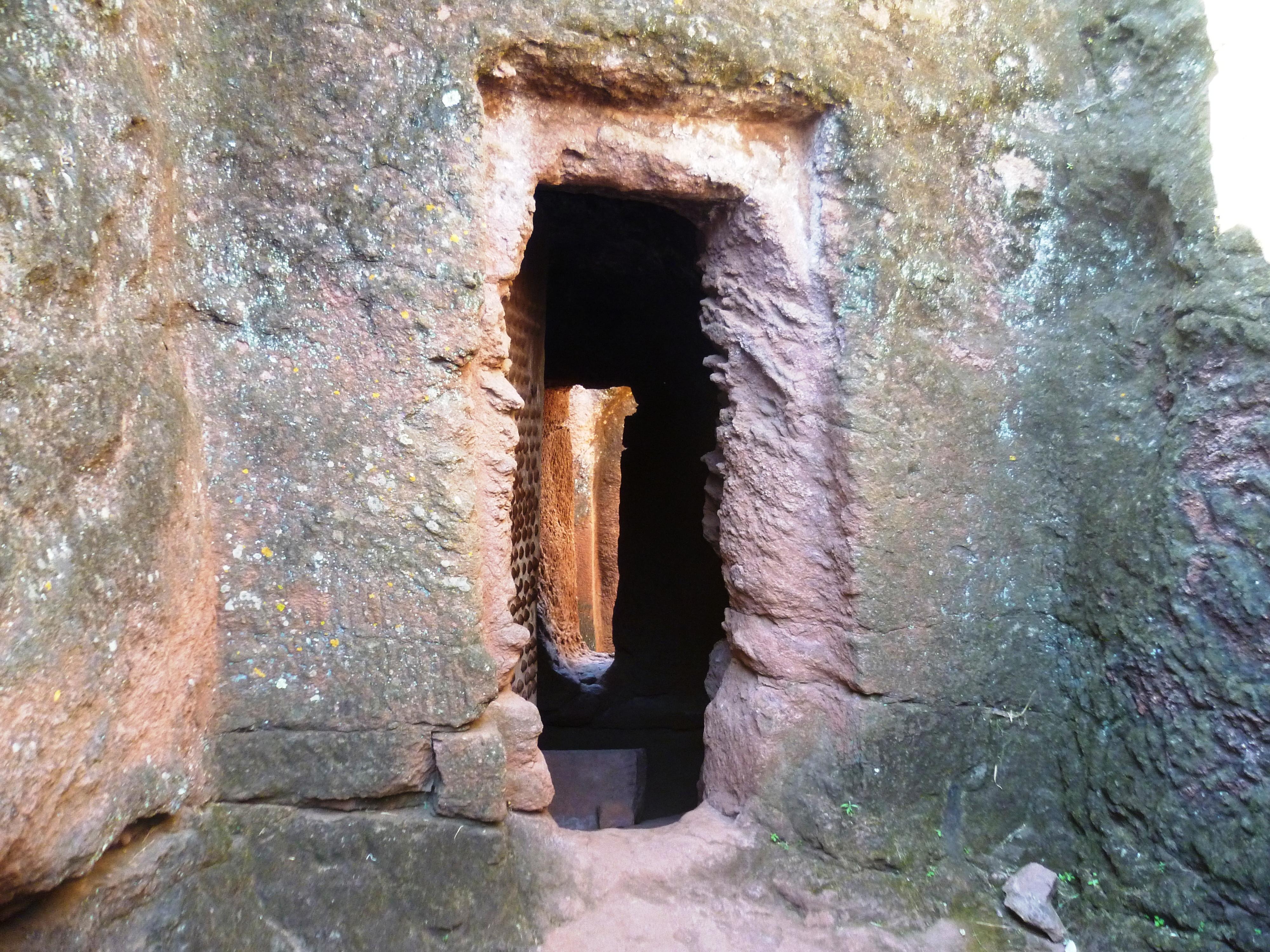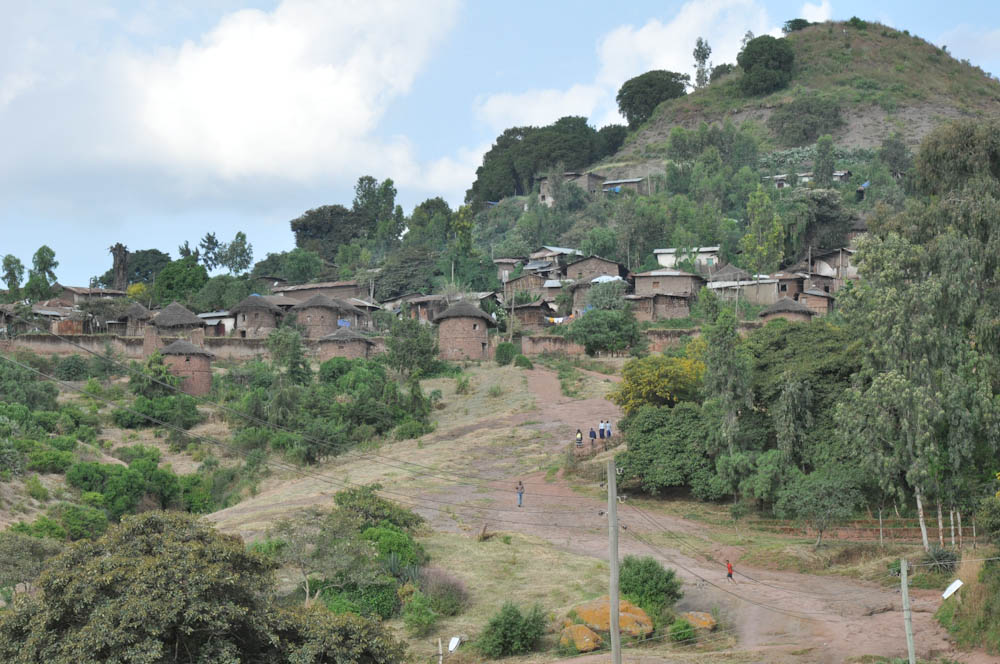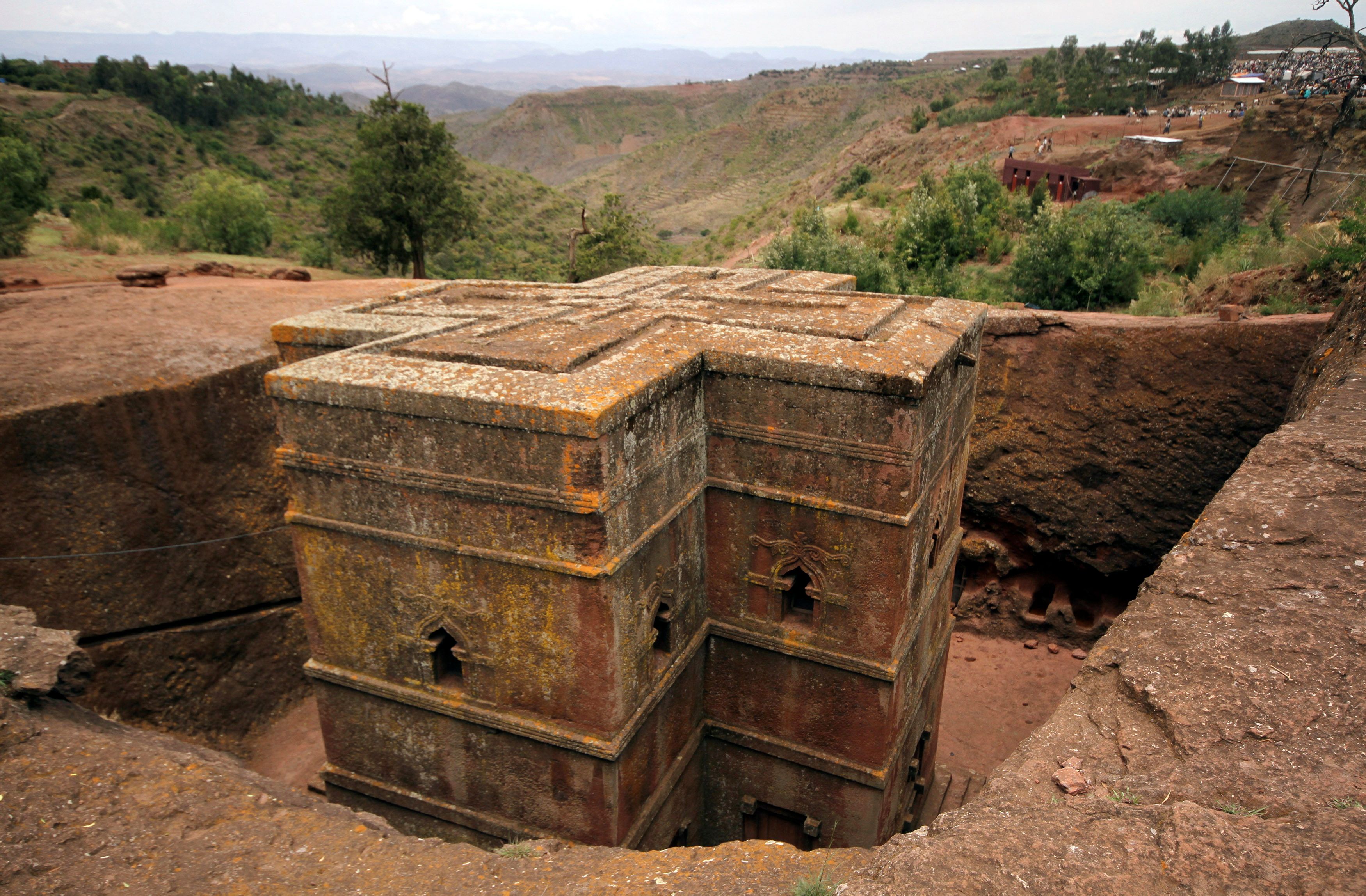Views Of Lalibela
About
location:
Amhara region, Ethiopia
Lalibela is a town located in the Amhara region of northern Ethiopia. It is famous for its rock-hewn churches, which are a UNESCO World Heritage site and a major pilgrimage site for Ethiopian Orthodox Christians.The town is a significant religious center and pilgrimage site for Ethiopian Orthodox Christians
The churches in Lalibela were built in the 12th and 13th centuries by King Lalibela, after whom the town is named, who wanted to create a "New Jerusalem" after Muslim conquests hindered Christian pilgrimages to the Holy Land. The churches are intricately carved and connected by tunnels and passages.
The rock-hewn churches of Lalibela are considered one of the wonders of the world due to their architectural and engineering complexity. The churches are connected by tunnels and passages, with intricate carvings and decorations both inside and outside. Each church has a unique design and significance, and many of them are still actively used for worship and religious ceremonies.
Lalibela is also known for its vibrant culture, traditional music, and festivals. It attracts tourists and pilgrims from around the world who come to visit the churches, experience the rich history and heritage, and immerse themselves in the spiritual atmosphere of the town.
In conclusion, Lalibela is a popular tourist destination, drawing visitors from around the world to marvel at its ancient churches and rich cultural heritage. In addition to the rock-hewn churches, Lalibela offers stunning mountain scenery, traditional markets, and a vibrant local culture.
It is a place of great historical and spiritual significance in Ethiopia and a must-visit destination for those interested in history, architecture, and religion.
Things to know before travelling to Lalibela
This article is a tip of the iceberg but will equip you with the "Absolute Need to Knows" for Lalibela.
How to get there?
Getting to Lalibela can be a bit of an adventure! There is an airport in Lalibela, but it only has limited international flights, so many visitors fly into Addis Ababa, the capital of Ethiopia. From Addis Ababa, you can take a bus or a minibus to Lalibela, which is a 7-hour journey.
The journey is definitely an experience in itself, as you'll see the beautiful Ethiopian countryside along the way. There are also some hotels in Lalibela that can arrange transport from Addis Ababa. The journey is definitely worth it, as Lalibela is truly a magical place to visit.
Once you're in Lalibela, it's easy to get around on foot. The town is small and walkable, and you can explore the churches at your own pace. There are also some local guides who can take you on a tour of the churches.
About the weather
The weather in Lalibela is warm and dry for most of the year. The rainy season is from June to September, and it can get quite wet during this time. However, it can get very cold at night, so it's important to bring warm clothes for the evenings.
It's also worth noting that Lalibela is located at an altitude of over 2,500 meters, so the air is thin and the sun is very strong. Make sure to wear sunscreen and drink plenty of water!
Medical matters that affect your visit.
Lalibela is a historic town in Ethiopia known for its rock-hewn churches and religious significance. When visiting Lalibela, there are certain medical matters to consider due to the region's specific challenges and conditions. Here are some medical matters that may affect your visit to Lalibela:
Altitude sickness
Lalibela is situated at an elevation of around 2,500 meters (8,200 feet) above sea level. Some travelers may experience altitude-related issues such as altitude sickness, which can range from mild symptoms like headache and fatigue to more severe conditions. It is essential to acclimatize gradually, stay hydrated, and seek medical help if symptoms worsen.
Traveler's diarrhea
Travelers to Lalibela should be cautious about food and water safety to avoid contracting traveler's diarrhea, a common illness caused by consuming contaminated food or water. Practicing good hygiene, avoiding street food, and drinking bottled or boiled water can help prevent this condition.
Malaria
Lalibela is located in a malaria-endemic area, so travelers should take precautions to prevent mosquito bites and consider antimalarial medication depending on their travel plans and duration of stay. It is advisable to use insect repellent, wear long sleeves and pants, and sleep under mosquito nets to reduce the risk of malaria.
Sun exposure
The high altitude in Lalibela means that UV radiation levels can be higher, increasing the risk of sunburn and heat-related illnesses. Travelers should use sunscreen, wear protective clothing, and stay hydrated to protect themselves from sunburn and dehydration.
Limited healthcare facilities
Lalibela is a remote area with limited medical facilities, so travelers should be prepared for potential challenges in accessing quality healthcare in case of medical emergencies. It is advisable to have travel insurance that covers medical evacuation and to carry a well-equipped travel medical kit with essential supplies.
Dust and air quality
Lalibela's dry and dusty climate can exacerbate respiratory conditions in individuals with asthma or other respiratory issues. Travelers with pre-existing respiratory conditions should take precautions, such as carrying necessary medications and avoiding exposure to dust and pollutants.
Cultural considerations
Overall, being aware of these medical matters and taking necessary precautions can help travelers have a safe and enjoyable visit to Lalibela.
Consulting a healthcare provider or travel medicine specialist before the trip can provide personalized medical advice and recommendations based on individual health concerns and travel itinerary.
Cultural Ettiquettes at Lalibela
Lalibela is a town in Ethiopia that is known for its rock-cut churches, which are carved directly into the ground. The town is a popular pilgrimage site, and it's important to follow the local cultural etiquette when visiting.
When entering a church, it's important to remove your shoes and dress modestly. Women should cover their shoulders and wear skirts or dresses that reach below the knee. Men should wear long pants and a shirt with sleeves. It's also important to be respectful and quiet when inside the churches.
In addition to the clothing and noise etiquette, there are a few other things to keep in mind when visiting Lalibela. When entering a church, it's customary to bring a donation, such as a candle or some money, to give to the priests. It's also important to avoid taking photos inside the churches without permission.
The priests may also ask you to leave if you are disrupting the service or are otherwise disrespectful. During the holidays of Christmas and Easter, the town is particularly busy, so it's best to book accommodation in advance.
About the locals
The locals of Lalibela are primarily Christian, and they are known for their hospitality and generosity. They are proud of their culture and heritage, and they are happy to share it with visitors. Many locals work in the tourism industry, and they are eager to help visitors have a good experience in the town.
They may invite you to join them for coffee or tea, and they may try to sell you souvenirs, but they are generally not pushy. They may also ask you questions about your life and country, as they are curious about the world outside of Lalibela.
In addition to being friendly and welcoming, the locals of Lalibela are known for their traditional culture and values. Many of the people in the town live a simple life, and they place a high value on family, community, and religion.
Most people in Lalibela speak Amharic, the official language of Ethiopia, but many also speak English or Tigrinya. Many locals are also farmers, and they grow crops like teff, wheat, and barley. Some also raise livestock, such as cattle and sheep.
Language and communication at Lalibela
Amharic is the official language of Lalibela, and it is spoken by the majority of the population. Amharic is a Semitic language, and it is written using the Ge'ez script. Many people in Lalibela also speak Tigrinya, another Semitic language that is closely related to Amharic.
Both Amharic and Tigrinya are tonal languages, which means that the tone of a word can change its meaning. Additionally, the people of Lalibela often use a mix of Amharic and English when speaking to tourists.
Safety at Lalibela
Lalibela is a safe place to visit. However, like any place, there are some potential risks to be aware of. The biggest safety concern in Lalibela is petty crime, such as pickpocketing and theft. It is important to be vigilant and to keep an eye on your belongings, especially in crowded areas.
It is also important to be aware of your surroundings and to trust your instincts. It is also a good idea to avoid walking alone at night and to stick to well-lit areas.
Vital Information on Money Matters
Lalibela is a small town, and the majority of businesses there are small, family-run businesses. Therefore, most businesses do not accept credit cards, and it is best to have cash on hand. It is also a good idea to have small bills, as change can be hard to come by.
It is also important to be aware of the local currency, the Ethiopian birr, and to know the exchange rate. Additionally, it is a good idea to check with your bank or credit card company to see if they charge any fees for using their services in Ethiopia.
One of the most important things to know about money matters in Lalibela is that there are few ATMs, and they are often unreliable. Therefore, it is best to bring enough cash to cover your expenses. If you do need to use an ATM, it is best to use one at a bank, as the ATMs at other locations may not be as secure.
It is also important to be aware that there is a limit on how much cash you can withdraw from an ATM in one day. Additionally, it is a good idea to have some backup cash stashed away in case of an emergency.
Fun things to do at Lalibela
Visit the Rock-Hewn Churches
Lalibela is famous for its impressive rock-hewn churches, which are designated as a UNESCO World Heritage site. These churches are carved out of solid rock and are a remarkable architectural feat. Explore these unique churches and learn about their history and significance.
Attend a Religious Festival
Lalibela is a center of Ethiopian Orthodox Christianity, and there are several religious festivals held throughout the year. These festivals are colorful and vibrant celebrations that offer a glimpse into the rich cultural and religious traditions of the region. Check the calendar for upcoming festivals and plan your visit accordingly.
Trekking and Hiking
Lalibela is surrounded by beautiful landscapes and offers plenty of opportunities for trekking and hiking. Explore the rugged terrain, lush forests, and stunning viewpoints while getting some exercise and fresh air. There are several trails of varying difficulty levels to suit all preferences.
Local Market Visits
Immerse yourself in the local culture by visiting the bustling markets in Lalibela. Here, you can browse through a variety of goods such as traditional crafts, clothing, jewelry, and local produce. Interact with the friendly vendors and maybe even pick up a unique souvenir to take home.
Experience Traditional Ethiopian Cuisine
Treat your taste buds to the flavors of Ethiopian cuisine by trying local dishes such as injera (a spongy flatbread), doro wat (spicy chicken stew), and kitfo (raw minced meat dish). Explore the local restaurants and cafes to sample authentic Ethiopian flavors and immerse yourself in the culinary delights of the region.
Cultural Performances
Enjoy traditional music and dance performances that showcase the vibrant culture of Ethiopia. Listen to the rhythmic beats of traditional instruments and watch the colorful dances that tell stories of the rich heritage of the region. Check local listings for performances happening during your visit.
Photography Opportunities
Lalibela offers plenty of photographic opportunities with its stunning landscapes, unique architecture, and colorful markets. Capture the beauty and essence of the region through your lens and create lasting memories of your trip to Lalibela.
Attend Cultural Events
Keep an eye out for cultural events and festivals happening on Victoria Island, such as art exhibitions, music concerts, and food fairs. These events are a great way to immerse yourself in the local culture and meet new people.
Overall, Lalibela offers a mix of cultural, historical, and natural attractions that are sure to keep visitors entertained and engaged. Whether you are interested in exploring ancient churches, experiencing local festivals, or enjoying outdoor activities, Lalibela has something for everyone to enjoy.
Who can travel to Lalibela?
Lalibela is open to tourists from all over the world. However, there are a few requirements that all visitors must meet. First, all visitors must have a valid passport and visa. In addition, all visitors must have proof of yellow fever vaccination. All visitors must also have a valid travel insurance policy that covers medical expenses and evacuation.
While most people can travel to Lalibela, there are a few exceptions. First, citizens of Israel are not allowed to travel to Ethiopia, due to diplomatic relations between the two countries. Additionally, visitors from certain countries may need to obtain a special visa in advance of their trip.
These countries include Yemen, Somalia, Afghanistan, and Iraq. If you are unsure about your eligibility to travel to Lalibela, you can check with the Ethiopian embassy in your country.
Travel Documents
You will need a valid passport and visa to enter Ethiopia. Make sure your passport is valid for at least six months after your travel date and check if you need to obtain a visa before traveling.
What time of the year is best to visit?
The best time to visit Lalibela is between the months of October and April. During these months, the weather is pleasant and the crowds are not as large as they are during the peak season.
Additionally, many of the festivals and events that take place in Lalibela occur during this time. If you are looking to visit Lalibela during the peak season, it is best to book your trip well in advance, as hotels and flights can fill up quickly.
Packing essentials for your trip
Here is a list of packing essentials for a trip to Lalibela, Ethiopia:
- Lightweight and breathable clothing for the hot climate
- Modest clothing suitable for visiting churches and religious sites
- Comfortable walking shoes for exploring the rocky terrain
- Sweater or jacket for cooler evenings
- Passport with at least six months validity
- Visa for entry into Ethiopia (if required)
- Travel insurance documents
- Copies of important documents like passport and travel insurance
- Prescription medications and a basic first aid kit
- Sunscreen and insect repellent
- Hand sanitizer and hygiene products
- Personal toiletries
- Camera or smartphone for capturing memories
- Electrical adapter and converter for Ethiopian power outlets
- Portable charger for your devices
- Daypack or backpack for carrying essentials during day trips
- Water bottle to stay hydrated
- Sunglasses and hat for sun protection
- Cash in the local currency (Ethiopian birr) for small purchases
Remember to pack light and efficiently to make your travel experience more comfortable. Enjoy your trip to Lalibela, Ethiopia!
view map
Book Flight ticket
If this widget is not showing try reloading the page
The flight search result will be provided in a new tab
Addis Ababa Bole international airport will be a good destination if you are coming from outside Ethiopia
Book Hotel
If this widget is not showing try reloading the page
The hotel search result will be provided in a new tab
Input Lalibela, Ethiopia as the city name to search and compare hotel prices
You can book tours at hotels upon arrival.

